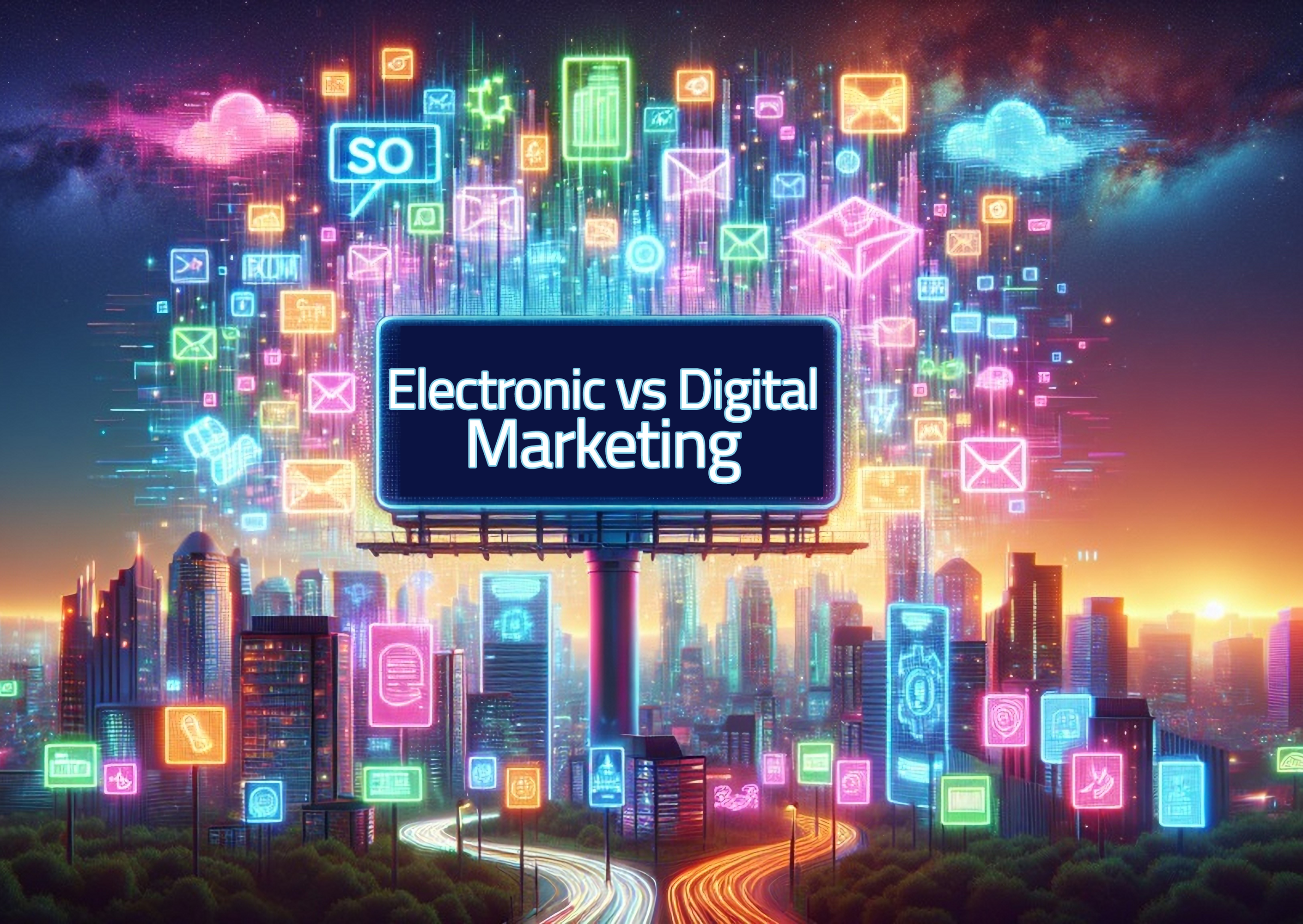
In today’s rapidly evolving digital world, online marketing has
become essential for every business owner or marketing professional.
Whether you're focusing on an internet marketing strategy, social
media marketing, or any other form of digital marketing — including
content creation, paid ads, and SEO — it’s crucial to understand the
differences between digital marketing vs internet marketing and
electronic marketing. These terms are often used interchangeably,
but in reality, there are key distinctions that can significantly
influence how you reach a specific audience and manage customer
relationship management effectively.
Digital marketing, as a part of digital marketing strategy as a
whole, relies on a combination of data, technology, and
communication channels to deliver targeted and measurable campaigns.
In this article, we’ll explain the difference between digital
marketing and electronic marketing in a simple and practical way —
with real examples — to help you choose the right digital marketing
strategy for your project’s success, including how digital marketing
involves various online channels and how it compares to internet
marketing.
What is Electronic Marketing?
Electronic marketing refers to a form of marketing that relies on
the internet as the primary channel for promoting products or
services. It uses marketing techniques designed to reach potential
customers directly through online channels.
This type of marketing depends on tools and platforms that require
an internet connection, such as:
• Email marketing
• Search Engine Optimization (SEO)
• Search Engine Advertising (Google Ads)
• Marketing through social media platforms like Facebook and Instagram
• Content creation and blogging
• Affiliate marketing
In short: Electronic marketing = marketing that happens strictly online.
What is Digital Marketing?
On the other hand, digital marketing is a broader term. It includes marketing via the internet, but is not limited to online channels. Digital marketing refers to any marketing method that uses digital technologies to reach the audience, whether connected to the internet or not. Examples include:
• SMS marketing
• Digital screens in malls or public areas
• Mobile apps
• Voice message or auto-call marketing
• Advertising through smart TVs
• Augmented Reality (AR) and Virtual Reality (VR)
Therefore: Every electronic marketing effort is digital marketing, but not every digital marketing effort is electronic.
Key Differences Between Digital Marketing and Electronic Marketing
Digital Marketing
- Access Method: Any digital channel (online or offline)
- Includes Social Media? ✅ Yes
- Includes SMS Marketing? ✅ Yes
- Scope: Broader and more comprehensive
- Requires Internet Connection? ❌ Not always
- Examples: SMS, Apps, Digital Screens, AR Marketing
Electronic Marketing
- Access Method: Internet only
- Includes Social Media? ✅ Yes
- Includes SMS Marketing? ❌ No
- Scope: Narrower
- Requires Internet Connection? ✅ Yes
- Examples: Google Ads, Instagram, SEO
Digital marketing is ideal when you:
- • Want to reach your specific audience across various touchpoints (stores, streets, mobile devices, and digital channels).
- • Plan digital marketing strategies and campaigns that extend beyond the internet, showing how digital marketing vs internet marketing can differ.
- • Use apps or interactive tools powered by AI or AR/VR, along with social media marketing on major social media platforms.
Modern digital marketing including methods like email marketing, text message campaigns, online marketing, and search engine optimization SEO helps businesses promote their products or services. This type of marketing relies on tools such as CRM systems to manage customer relationships and better reach and engage customers. By combining advanced marketing techniques with search engines and social platforms, brands can attract potential customers and strengthen engagement across multiple touchpoints.
How to Choose Between Electronic and Digital Marketing?
Choose digital marketing if your business operates across various media types or you're aiming to build a full customer experience with the help of tools like CRM systems that allow you to better reach and engage customers. If you’re just starting and rely solely on online presence, begin with electronic marketing, using methods such as text message campaigns, and expand your channels as you grow.
Conclusion
Understanding the difference between digital marketing and
electronic marketing can significantly improve the effectiveness of
your campaigns. Choose your tools and platforms based on your
budget, audience behavior, and the nature of your product or
service.
In the end, combining both approaches gives you more flexibility and
broader reach to connect with your target audience in powerful ways.



































